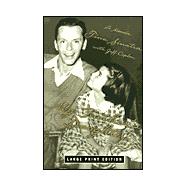A startling, compelling, yet affectionate portrait of an American entertainment legend by his youngest daughter, who for the first time writes about the man, his life, the accusations, and about the many people who surrounded him -- wives, friends, lovers, users, and sycophants -- from his Hoboken childhood through the notorious "Rat Pack," and beyond.
Complete with many never before seen photographs taken directly from family albums, and placing special emphasis on his later years and his marriage to Barbara Marx Sinatra, Tina's personal exploration of this difficult final period in her father's career will solidify our image of Sinatra as a great performer and reinforce him as something even greater: as a father, and as man.








